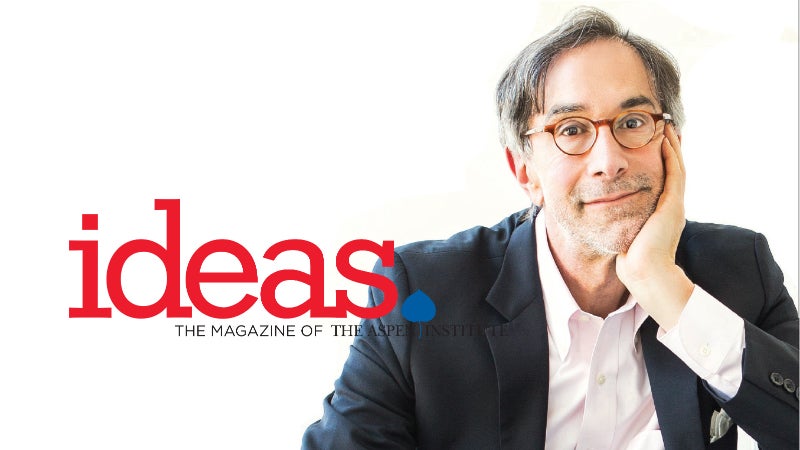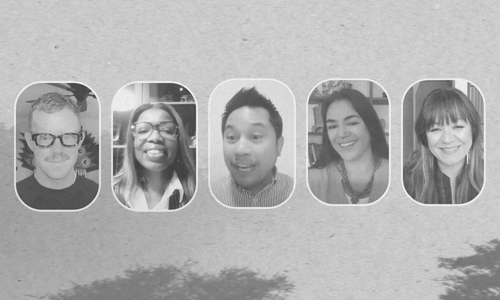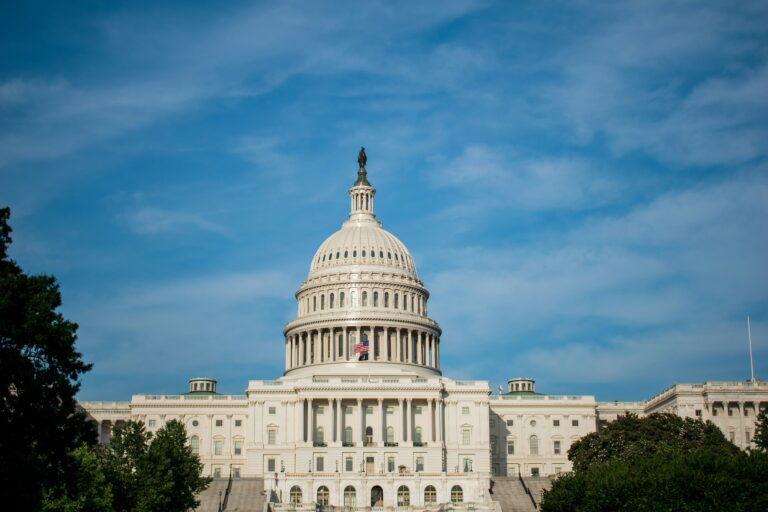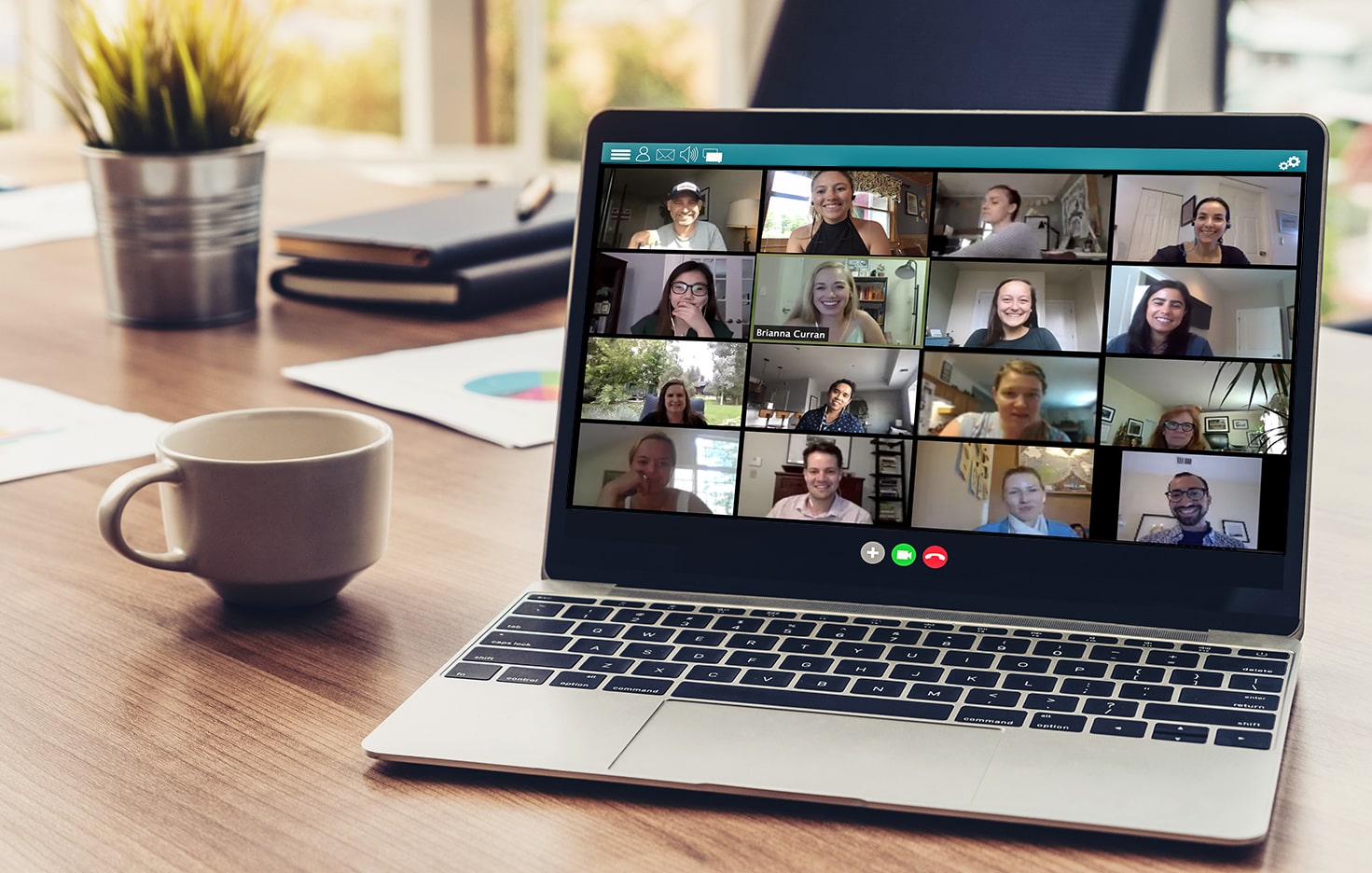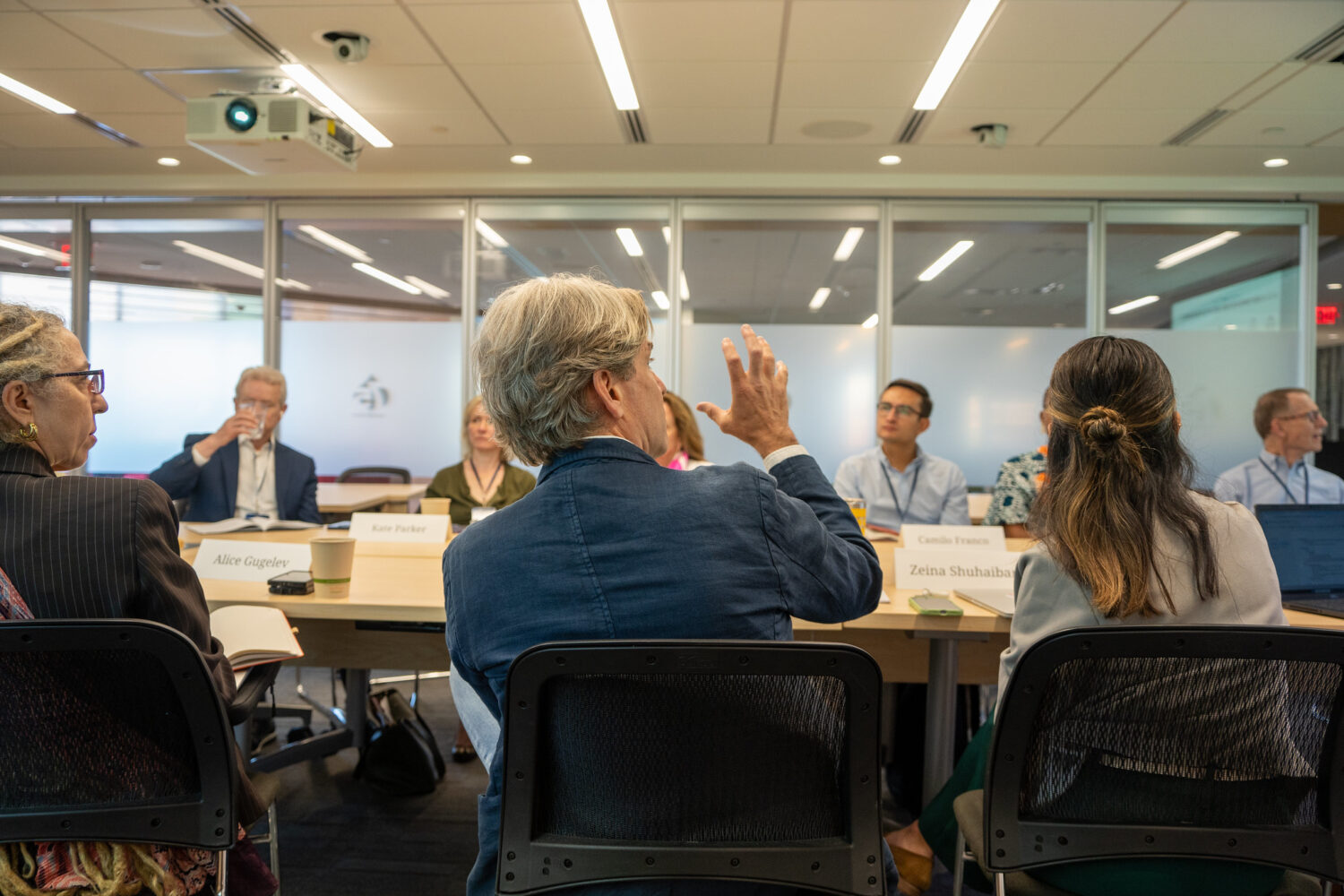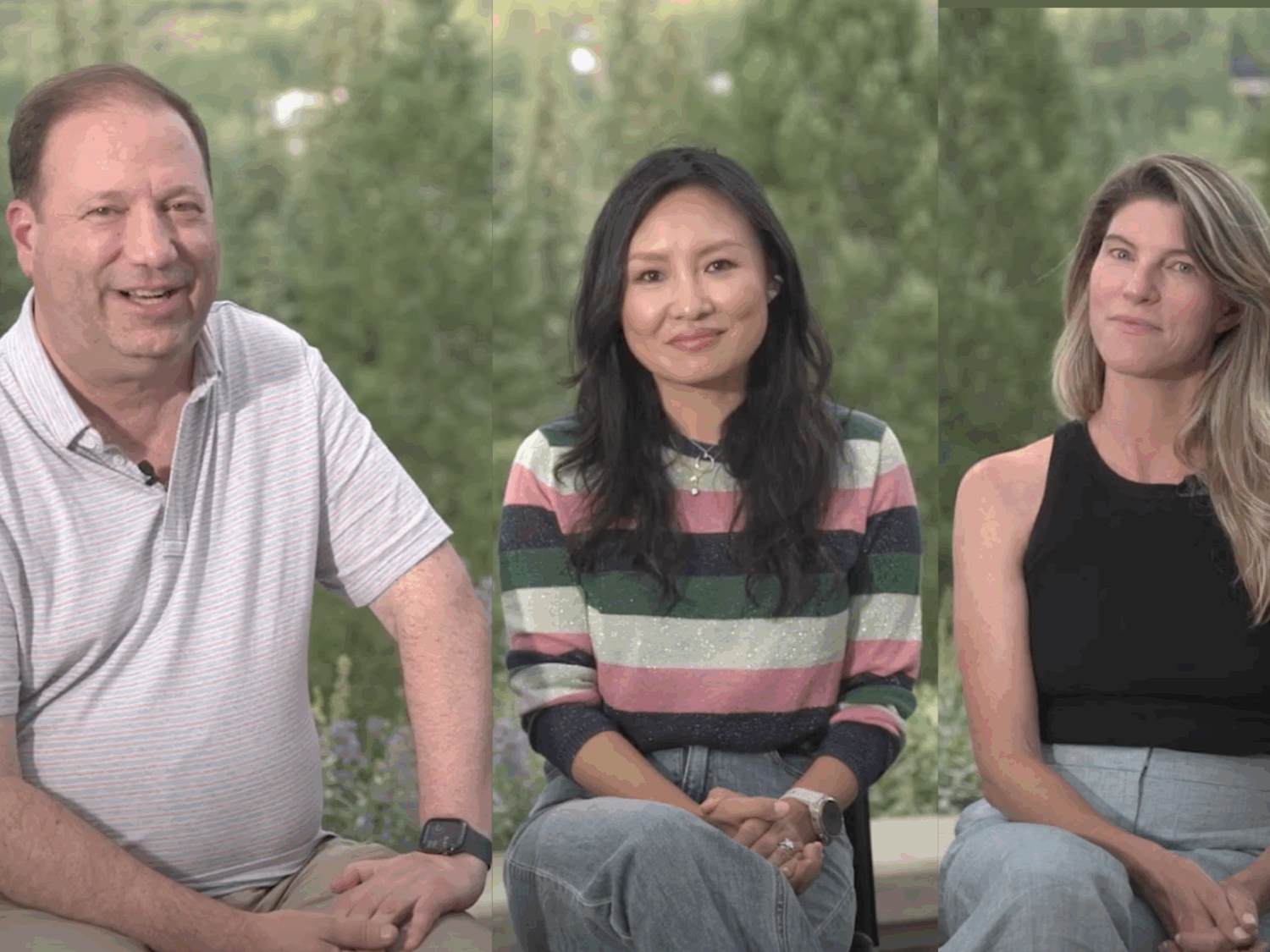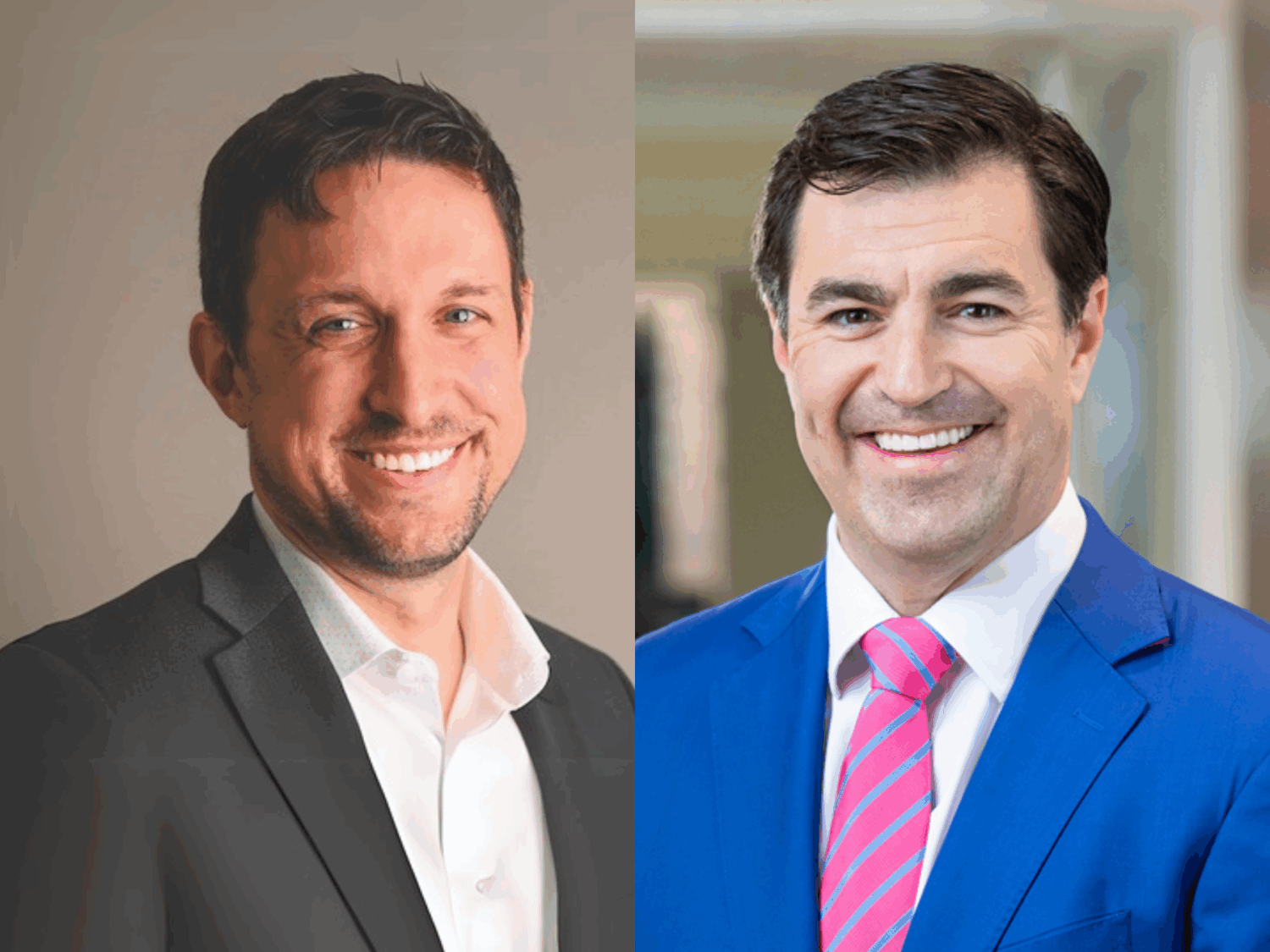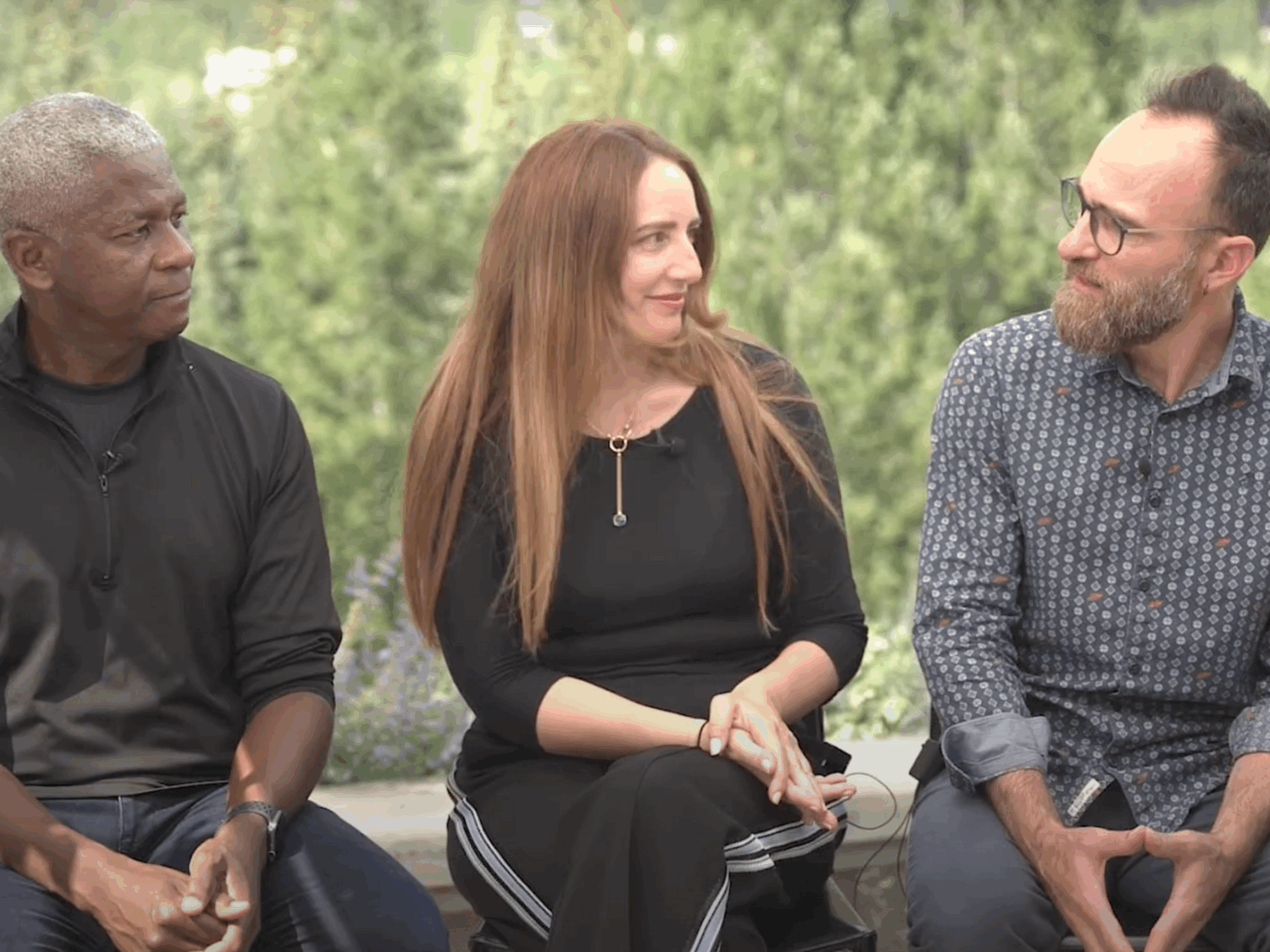“You don’t even know how tall they are,” a new colleague reported her partner saying as he passed the full Zoom screen during the department’s morning call. He was of course right: she had joined the communications department staff after the Institute’s offices closed, early in March, and aside from our better-than-daily meetings had never actually met any of us. So no, she couldn’t tell her partner much about what we looked like lower than chest level. But she could tell him in fine-grained detail about our pets, our opinions of pretty much every TV show ever made, our favorite breakfast cereals. We had come together as a department, rowing toward the same distant and unknown horizon, thinking of new and better ways to collaborate, in ways none of us could have predicted before, suddenly and confused, we had all said goodbye to each other and our office.
The communications team was lucky to find itself central to helping many of the Institute’s hallmark discussions move online. Programs took action right away: even before states and cities started closing down, the Health, Medicine and Society Program hosted Anthony Fauci, Nancy Messonier, and Ron Klain—who soon became familiar faces on nightly television—to talk about how to address a pandemic (page 10). The new Aspen Digital program began a series of weekly briefings on current topics, such as the tripling of cybercrime during the Covid-19 pandemic (page 25). The Energy and Environment Program invited the activist and writer Bill McKibben and two fellow young advocates to discuss how to keep climate-change momentum strong when all action must be virtual (page 24). And in my role as executive director of the Institute’s Food and Society Program, I was able, with the help of the Laurie M. Tisch Illumination Fund, to gather and streamline nearly a dozen worker-safety protocols into a single set of guidelines, which we released with Jose Andres’s World Central Kitchen, the James Beard Foundation, and Off Their Plate (page 15).
 What we all discovered in a time we feared would be marked by isolation in all senses was just how deeply we shared a commitment to common principles —and to each other. That rich discovery will keep us committed to the same goals long after our new colleague is able to go home and report exactly how tall each of us is.
What we all discovered in a time we feared would be marked by isolation in all senses was just how deeply we shared a commitment to common principles —and to each other. That rich discovery will keep us committed to the same goals long after our new colleague is able to go home and report exactly how tall each of us is.
—Corby Kummer

